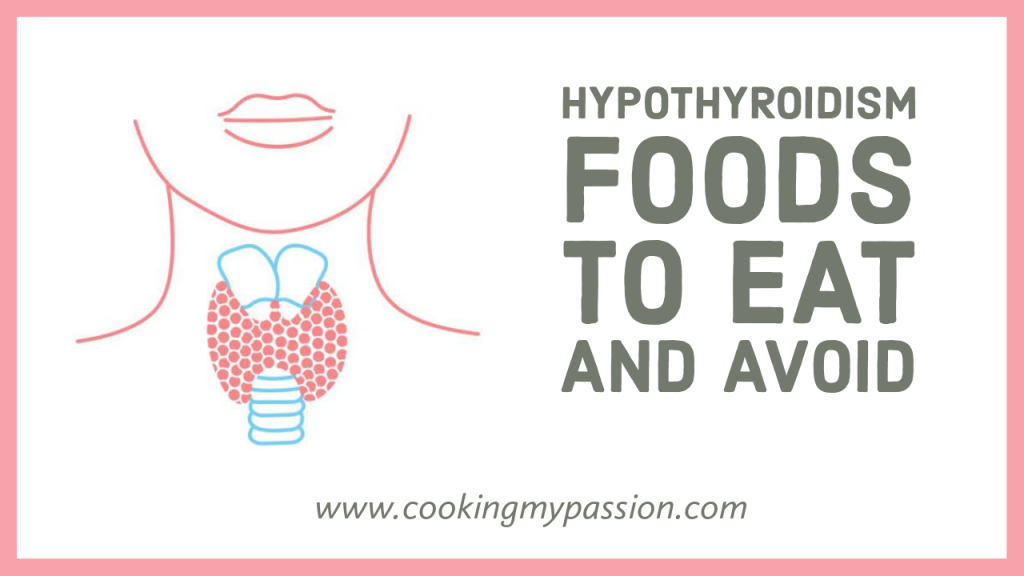
What is hypothyroidism?
The thyroid gland is a small, butterfly-shaped gland that sits near the base of your neck. It makes and stores thyroid hormones that affect nearly every cell in your body.
When the thyroid gland receives a signal called thyroid-stimulating hormone (TSH), it releases thyroid hormones into the bloodstream. This signal is sent from the pituitary gland, a small gland found at the base of your brain, when thyroid hormone levels are low.
Occasionally, the thyroid gland doesn’t release thyroid hormones, even when there is plenty of TSH. This is called primary hypothyroidism and the most common type of hypothyroidism.
Approximately 90% of primary hypothyroidism is caused by Hashimoto’s thyroiditis, an autoimmune disease in which your immune system mistakenly attacks your thyroid gland.
Other causes of primary hypothyroidism are iodine deficiency, a genetic disorder, taking certain medications, and surgery that removes part of the thyroid.
Other times, the thyroid gland does not receive enough TSH. This happens when the pituitary gland is not working properly and is called secondary hypothyroidism.
Thyroid hormones are very important. They help control growth, cell repair, and metabolism — the process by which your body converts what you eat into energy.
Your metabolism affects your body temperature and at what rate you burn calories. That’s why people with hypothyroidism often feel cold and fatigued and may gain weight easily.

Foods to eat
There are plenty of food options for people with hypothyroidism, including:
- eggs: whole eggs are best, as much of their iodine and selenium are found in the yolk, while the whites are full of protein
- meat: all meats, including lamb, beef, chicken, etc.
- fish: all seafood, including salmon, tuna, halibut, shrimp, etc.
- vegetables: all vegetables — cruciferous vegetables are fine to eat in moderate amounts, especially when cooked
- fruits: all other fruits, including berries, bananas, oranges, tomatoes, etc.
- gluten-free grains and seeds: rice, buckwheat, quinoa, chia seeds, and flax seeds
- dairy: all dairy products, including milk, cheese, yogurt, etc.
- beverages: water and other non-caffeinated beverages
People with hypothyroidism should eat a diet based around vegetables, fruits, and lean meats. They are low in calories and very filling, which may help prevent weight gain.
Here are a few tips to help you maintain a healthy weight.
Get plenty of rest. Aim to get 7–8 hours of sleep every night. Sleeping less than this is linked to fat gain, especially around the belly area. Lots of stress also makes one weight gain.
Practice mindful eating. Mindful eating, which involves paying attention to what you’re eating, why you’re eating, and how fast you’re eating can help you develop a better relationship with food. Studies also show that it can help you lose weight
Try yoga or meditation. Yoga and meditation can help you de-stress and improve your overall health. Research also shows that they help you maintain a healthy weight
Try a low to moderate carb diet. Eating a low to moderate amount of carbs is very effective for maintaining a healthy weight. However, avoid trying a ketogenic diet, as eating too few carbs may lower your thyroid hormone levels.
Foods to avoid
Many common foods and supplements contain compounds that interfere with thyroid function. In general, it’s best to avoid the following:
Soy
Studies suggest that phytoestrogens in soybeans and soy-rich foods may inhibit the activity of an enzyme that makes thyroid hormones. One study found that women who consumed soy supplements were three times more likely to develop hypothyroidism.
Iodine-rich foods
Some forms of hypothyroidism are caused by a lack of sufficient iodine. In such cases, using iodized salt or iodine-enriched foods can be beneficial. Trusted Source. But eating too much iodine can have the opposite effect and suppress thyroid gland activity. Check with your doctor before taking supplements.
Iron and calcium supplements
Taking iron or calcium supplements can also change the effectiveness of many thyroid medications.
High-fiber foods
Although a high-fiber diet is usually recommended, too much fiber eaten right after taking thyroid medicines may interfere with their absorption. Wait two hours before you eat a high-fiber meal (one with more than about 15 grams of fiber).
Certain vegetables
Cruciferous vegetables that are rich in fiber, like broccoli, cabbage, spinach, kale, and Brussels sprouts, may inhibit thyroid medication absorption. Reducing the amounts of such produce in the morning right after taking your medication may help.
Caffeine, tobacco, and alcohol can also influence the effectiveness of thyroid medicine. Ask your doctor for tips on how to regulate or reduce your consumption.
Processed Foods
Processed foods tend to be calorie-dense and offer little in the way of nutritional benefits. These foods promote weight gain, and must be avoided in the case of hypothyroidism. Processed foods like fast food, cookies, cakes, and doughnuts are to be kept at bay.
Sample meal plan
| Time | Meal |
| Morning 7 :00AM | Coriander Seeds Water (1 glass) / Lukewarm water with honey Almonds Soaked Overnight In Water (5 piece) |
| Morning 8 :30 – 9:00 AM | Red Poha with Peanut (1 cup) Homemade Sprouts (1 cup) brown chickpeas / green gram |
| Pre lunch 11:30 -12:00 PM | Whole fruits Apple / Pomogranate |
| Lunch 1:00 – 1:30 PM | Rice (1 cup) Cooked Moong Dal with Bottle Gourd Or any watery vegetabes (1 cup) / Sambhar /Rasam Vegetables kootu / poriyal /keerai Curd, Low Fat (0.5 cup) Veg Salad (1 cup) |
| Evening 4:30 PM | Whole wheat bread sandwich Green Tea (1 tea cup) |
| Night 7:00 – 7:30 PM | Roti 2 / Red Poha with mixed vegetables / Veg salad / Fruits salad |
| Before bed 9:00 -10 :00 PM | Skimmed Milk (1 cup) / Turmeric Milk |
Thyroid Food list from http://cookingmypassion.com/
Sources :

 Subscribe to my channel
Subscribe to my channel
Leave a Reply
You must be logged in to post a comment.